Phyllo Dough and Its Kosher Status for Passover
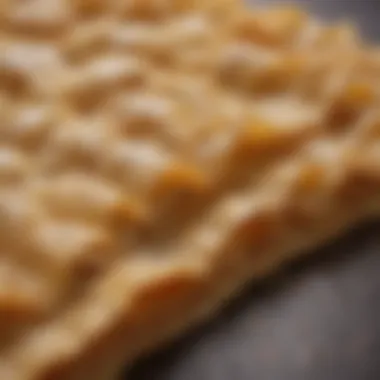
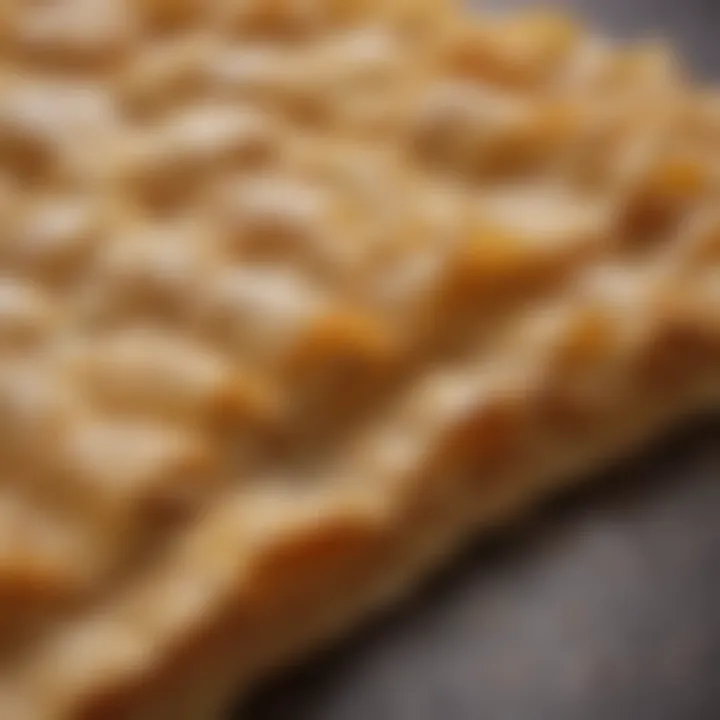
Intro
Phyllo dough plays a unique role in culinary traditions, especially during Passover. Understanding its kosher status for this holiday necessitates a nuanced discussion of its ingredients, preparation, and certifications. Beyond mere flour and water, the complexities associated with phyllo dough highlight the intersection of tradition, religion, and modern dietary practices.
As we examine the kosher considerations of phyllo dough, we also recognize the evolving customs surrounding Passover. This exploration will provide clarity on what defines phyllo dough as suitable or unsuitable, as well as the importance of adhering to kosher standards during this significant Jewish holiday. The significance of the ingredients used and the preparation methods adopted can alter its kosher status, making it essential to delve into these aspects.
In the sections that follow, we will break down the critical components of phyllo dough, its preparation process, and tips to ensure your culinary creations are compliant with kosher laws for Passover.
Prologue to Phyllo Dough and Passover
Phyllo dough holds a distinctive place in both culinary arts and cultural traditions. When it comes to Passover, this pastry's role becomes even more significant. This article emphasizes the unique characteristics of phyllo dough, alongside the kosher considerations that come into play during this Jewish holiday.
Understanding why phyllo dough is pivotal during Passover is essential for many reasons. Firstly, the influences of Jewish dietary laws affect everything from ingredient sourcing to cooking practices. Phyllo's versatility and flaky texture allow for a wide range of recipes, making it a valuable asset in Passover cooking. Additionally, the ability to create both sweet and savory dishes using phyllo opens up countless possibilities for family meals and celebrations.
As we delve into the details of phyllo dough, we will examine its essence and culinary importance, particularly during Passover. For those who celebrate, knowing how to navigate the kosher guidelines surrounding phyllo dough enhances the holiday experience. Detailed insights into ingredient awareness, preparation, and certification processes will equip readers with the necessary information to make well-informed choices.
The Essence of Phyllo Dough
Phyllo dough is a traditional pastry known for its thinness and crisp texture. It originally hails from the Mediterranean region, where it has been a staple in various cuisines for centuries. The dough consists of flour, water, and a small amount of oil or vinegar, which contributes to its unique properties.
The process of making phyllo involves rolling and stretching the dough into extremely thin sheets. This labor-intensive method results in numerous layers, which when baked, create a light and flaky texture. The artistry involved in its preparation is admired in culinary circles. For Passover, however, the focus shifts from just the texture to the kosher compliance of the dough.
The ingredients used to make phyllo must align with kosher laws, especially during Passover. Any omissions or substitutions can alter its kosher status, making an understanding of its essence essential for those observing the holiday.
Culinary Importance During Passover
During Passover, traditional foods are given special significance. The holiday revolves around themes of freedom, reflection, and dignity. Phyllo dough can embody these values as it serves a range of dishes that are both comforting and celebratory. Its ability to be filled with various ingredients allows tellers to pay homage to family recipes while also being creative with new, innovative fillings.
Some common uses during Passover include savory options like spinach and cheese burek or sweet varieties like nut and honey pastries. These dishes not only satisfy the palate but also reflect the rich traditions associated with the holiday.
The adaptability of phyllo dough makes it an excellent candidate for dietary considerations surrounding Passover. It functions well with many kosher ingredients, allowing cooks to express their culinary skills while adhering to religious practices.
"Phyllo dough, when prepared correctly, can elevate simple ingredients to create complex and festive dishes for Passover."
Overall, the culinary importance of phyllo dough in Passover cannot be underestimated. Its presence at the dinner table symbolizes both tradition and shared experiences among family and friends.
Understanding Kosher Law
Understanding kosher law is vital for anyone navigating the culinary landscape during Passover, especially when it comes to using ingredients like phyllo dough. Kosher laws encompass a set of dietary regulations connected mainly to Jewish teachings and traditions. For many, adhering to these laws is not only about dietary fulfillment but also about cultural identity and religious observance.
Kosher law defines what foods are permissible to consume and how those foods must be prepared. These guidelines play an essential role during Passover, a time when specific dietary restrictions are particularly pronounced. Recognizing these laws can significantly alter the approach and outcomes not only in meal preparations but also in how food products are sourced and certified.
Basics of Kosher Dietary Restrictions
Kosher dietary laws, established from the Torah, dictate various aspects of food consumption. These restrictions can be summed up in several core principles:
- Types of Animals: Only certain animals are considered kosher. For instance, mammals that chew their cud and have split hooves are permitted, while shellfish and pork are forbidden.
- Separation of Meat and Dairy: Another prominent principle is the prohibition against mixing meat and dairy products. Foods must be categorized, and utensils must be separated accordingly.
- Slaughter Methods: Animals must be slaughtered in accordance to specific rules to be deemed kosher. This process is called shechita and is performed by a trained individual.
- Processing Ingredients: Even when the main components are kosher, the processing methods and additional ingredients must also comply with kosher standards. For example, certain enzymes or processing aids may not be kosher.
These guidelines are particularly significant when considering phyllo dough, as the ingredients and the production process must be thoroughly examined to ascertain their compliance with kosher laws.
Historical Context of Passover Dietary Laws
Historically, the dietary laws surrounding Passover are rooted in the narrative of Exodus, commemorating the departure of the Israelites from Egypt. During this time, the original Passover sacrifice had to be eaten with unleavened bread. This led to the prohibition of leavened products during the holiday, building the foundation for the unique dietary restrictions that come into play each year.

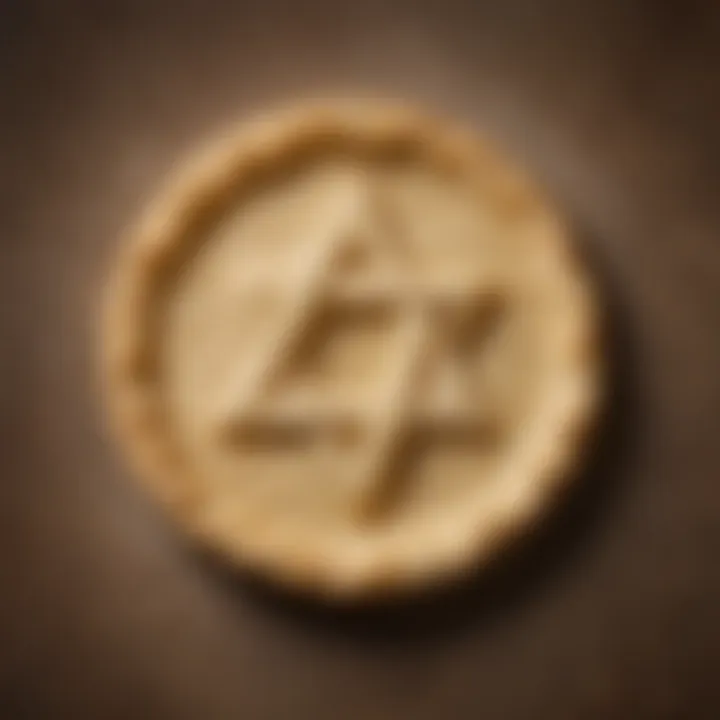
The laws of Passover are stricter than those of regular kosher observation. As such, any ingredient, including phyllo dough, must be reviewed diligently for any leavened content or potential contaminants.
Furthermore, the transformation of these laws through history has influenced modern practices and how communities engage with dietary observance today. Some families maintain strict adherence to traditional methods, while others may adopt contemporary solutions. This ongoing evolution of dietary laws and practices highlights the richly layered cultural significance of food during Passover.
Phyllo Dough Ingredients
Phyllo dough is a cornerstone in many Jewish culinary traditions, especially during Passover. The ingredients used to create phyllo dough play a vital role not just in the dough's texture and flavor, but also in its kosher status. Understanding these ingredients is key, particularly when preparing dishes intended for consumption during this significant holiday.
Key Components of Phyllo Dough
The primary ingredients of phyllo dough include flour, water, and salt. These elements combine to form a dough that is rolled out into thin sheets. The simplicity of these ingredients belies the skill required to create phyllo that is both delicate and pliable.
- Flour: Most commonly, all-purpose flour is used. However, for kosher dietary adherence, it is essential to ensure that the flour itself is certified as kosher. This is crucial, as flour can sometimes be processed in facilities that do not adhere to kosher practices.
- Water: Typically, tap water is sufficient. But, those following strict kosher laws should consider the source of the water as well. In some cases, using bottled water may be preferred to avoid any potential issues with local water supply that may not meet kosher standards.
- Salt: Regular salt is generally kosher, provided it’s free of any additives like anti-caking agents that are not kosher. When choosing salt, the label should indicate its kosher status to be safe for Passover use.
Potential Non-Kosher Ingredients
While phyllo dough seems simple, some commercial varieties may include additives that can compromise its kosher status. Identifying these non-kosher components is essential to ensure compliance with dietary laws during Passover.
- Fats and Oils: Some commercial phyllo doughs may include lard or other non-kosher fats. Verify the source of fats in the product. Opt for those made with vegetable oils that are kosher certified.
- Preservatives: Certain preservatives found in packaged phyllo dough can be problematic. Ingredients like calcium propionate or other sneaky additive compounds might not conform to kosher standards. Reading the ingredient list carefully is essential.
- Flavoring Agents: Sometimes, flavor enhancers are added. Is it soy sauce powder or a similar ingredient? These can easily veer into non-kosher territory. Thus, checking for kosher certification is non-negotiable.
Certifications and Labels
Certifications and labels play a significant role in determining the kosher status of phyllo dough, especially during Passover. This is pertinent for individuals and families striving to uphold dietary laws while preparing for the holiday. Certifications provide assurance that products meet specific standards set by rabbinic authorities. It is not only about ingredients but also about production methods, which can affect the kosher status of each food item. Consumers should pay close attention to these aspects, as they can help avoid potential pitfalls in kosher compliance.
Recognizing Kosher Symbols
Identifying kosher symbols requires some awareness. There are various symbols indicating that a product is kosher. Common symbols include:
- OU: Orthodox Union, a widely recognized seal.
- OK: Another reputable certifying agency.
- Star-K: Known for strict standards in kosher food certification.
Each symbol signifies different levels of oversight and compliance with kosher laws. This guides consumers in making informed choices, particularly during Passover. The presence of these symbols on phyllo dough packages assures buyers of its suitability for the holiday. It's essential to familiarize oneself with these icons to ensure that what you buy aligns with your kosher needs.
Importance of Reliable Certification During Passover
During Passover, the stakes are higher for maintaining kosher standards. Many foods, including phyllo dough, must adhere to stricter regulations due to the prohibition of leavened bread. Reliable certification is crucial for several reasons:
- Avoiding Chametz: Only certified products that are free from chametz, or leaven, can be consumed. This ensures observance of one of the core principles of Passover.
- Trust in Manufacturers: Certification offers assurance about the integrity of manufacturing practices, ensuring no cross-contamination occurs.
- Consumer Confidence: It builds trust with consumers. Knowing that a product has been rigorously checked by a valid authority allows for peace of mind.
Preparing Phyllo Dough for Passover
The preparation of phyllo dough for Passover is significant. Understanding how to approach this culinary task can enhance both the authenticity and enjoyment of the holiday. It is essential to know whether the dough meets stringent kosher standards during this time. Choosing the right dough can influence dish quality and adherence to dietary laws. This section explores two main aspects: homemade versus store-bought options, and tips for handling phyllo dough gracefully.
Homemade vs. Store-Bought Phyllo Dough
When considering phyllo dough, one can choose between making it from scratch or purchasing it. Each option has advantages and disadvantages.
Homemade phyllo dough:
Making phyllo dough at home allows for total control over the ingredients. This is particularly important for those observing kosher laws, as it minimizes the risk of non-kosher elements. The process is labor-intensive but rewarding. An accurate assessment of the dough quality is vital. Homemade dough can be fresher, and its flavor is often superior. However, it requires skill and patience. Here are some key points to consider:
- Control over kosher status
- Fresher taste and texture
- Time-consuming and requires effort
Store-bought phyllo dough:
Buying pre-made phyllo dough is undoubtedly convenient. Many brands offer kosher options. It saves time and often produces consistent results. However, one must scrutinize labels carefully for kosher certification. A common concern is the presence of potential allergens or non-kosher ingredients. When opting for store-bought dough, consider these aspects:
- Accessibility and convenience
- Time-saving choice
- Need to verify kosher certification
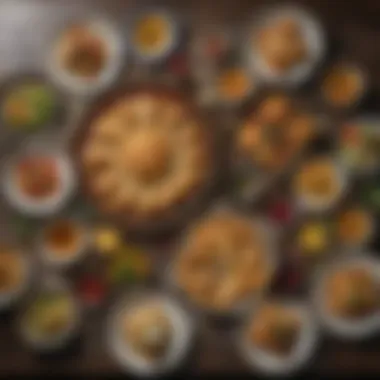
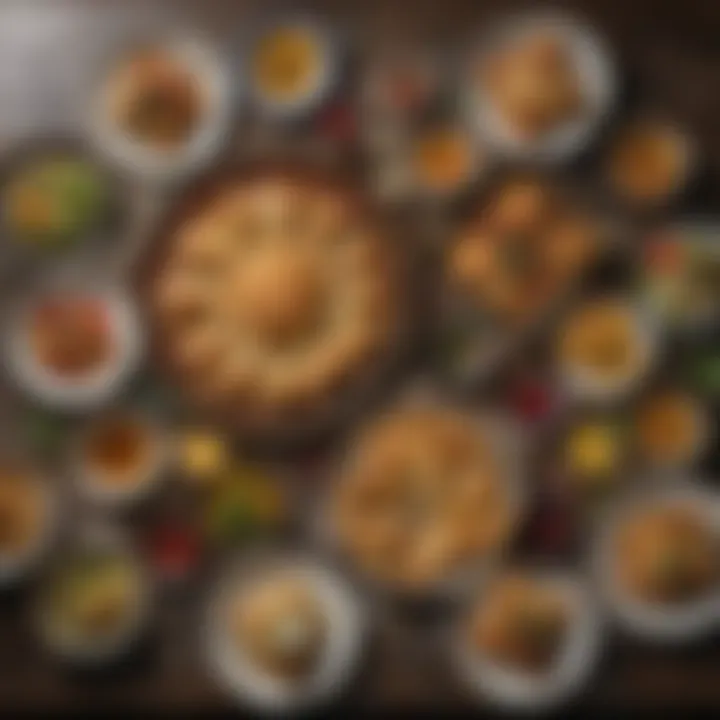
The choice between homemade or store-bought phyllo depends on personal preference and circumstances. Both methods can lead to delicious results if proper attention is given to dietary laws.
Tips for Handling Phyllo Dough Gracefully
Handling phyllo dough requires some finesse, as its thinness can lead to tearing and drying out. Here are a few tips to ensure a successful experience:
- Thaw Properly:
Always ensure that frozen phyllo dough is completely thawed before use. Leaving it at room temperature for a few hours or overnight in the refrigerator can help maintain its integrity. - Keep Covered:
Once opened, keep the phyllo sheets covered with a damp cloth. This prevents them from drying out, which can cause them to become brittle and difficult to work with. - Use a Light Touch:
Handle the dough gently. Avoid pressing too hard when layering sheets. A light touch helps to prevent accidental tearing. - Brush With Oil or Melted Butter:
When layering sheets, brushing the top of each with oil or melted butter enhances flavor and adds richness. Ensure it is done sparingly, as too much can make the dough soggy. - Practice Makes Perfect:
If you are new to handling phyllo dough, practice is key. Small batches are a good way to familiarize yourself with its properties. Trying to make smaller dishes or appetizers can build confidence before tackling larger recipes.
These tips can help ensure that your experience with phyllo dough is a positive one, bringing joy and flavor to your Passover meals.
Recipes Using Kosher for Passover Phyllo Dough
The exploration of recipes using kosher phyllo dough during Passover serves a dual purpose. First, it acts as a bridge between tradition and modern cooking. Second, it enables people to diversify their menu while adhering strictly to dietary laws. Phyllo dough is celebrated for its flaky texture and versatility, which elevates both savory and sweet dishes. Therefore, selecting recipes that meet kosher standards maximizes not just the flavor, but also the holiday's significance.
When planning meals for Passover, it is crucial to choose recipes that not only comply with the dietary restrictions laid out by kosher law but also bring joy to the table. Recipes should incorporate fresh ingredients and maintain authenticity while encouraging creative expressions in cooking. Using phyllo dough allows cooks to innovate while still respecting tradition.
Savory Dishes for Passover
Savory dishes utilizing kosher phyllo dough can ignite culinary creativity. Popular options include spinach and cheese pie, often called Spanakopita, and stuffed mushrooms. Each of these dishes can be easily modified to ensure they fit kosher guidelines and suit the tastes of varying audiences.
- Spinach and Cheese Pie:
Use layers of phyllo dough, filled with sautéed spinach, feta cheese, and herbs. This dish can be served warm or at room temperature, making it suitable for any Passover gathering. - Stuffed Mushrooms:
Fill mushroom caps with a mixture of finely chopped vegetables and spices, then wrap them in phyllo for an elegant touch. These simple yet flavorful bites please the taste buds while remaining compliant with kosher requirements.
Choosing ingredients wisely for savory dishes is essential. For instance, using certified kosher cheeses and ensuring that all elements meet the Passover specifications will maintain the integrity of the meal.
Sweet Treats for Passover Celebrations
Sweet treats made with kosher phyllo dough provide the perfect endnote to any Passover meal. Popular options like Baklava and phyllo-wrapped fruit desserts celebrate the holiday while satisfying the palate's cravings.
- Baklava:
This classic dessert consists of layers of phyllo, nuts, and sweet syrup. Ensuring each component is kosher makes it a revered dish during Passover festivities. Different nut combinations can cater to personal tastes while producing unique flavor profiles. - Phyllo-Wrapped Apples:
Slice fresh apples, sprinkle with cinnamon and sugar, then wrap in phyllo for an easy baked dessert. Serve warm with a scoop of kosher for Passover ice cream for an impressive finish to any meal.
These sweet treats not only satisfy a dessert craving but also allow for creativity in flavor pairings. By thoughtfully selecting ingredients, one can bring traditional Passover flavors to the forefront while innovating with texture and presentation.
"Passover meals need not sacrifice flavor or creativity, especially when using phyllo dough."
In summary, recipes with kosher phyllo dough add versatility and excitement to Passover meals. Savory and sweet options abound, each one reflecting a commitment to kosher practices while enchanting the dining experience.
Phyllo Dough in Modern Passover Cooking
Phyllo dough holds a unique position in contemporary Passover cooking. It offers chefs and home cooks an opportunity to blend traditional recipes with modern culinary trends. Its versatility allows for creativity while still adhering to kosher guidelines. Understanding its role is vital for those seeking to elevate their Passover dining experience.
Emerging Trends in Passover Cuisine
In recent years, there has been a notable shift in how Passover cuisine is approached. More individuals are exploring innovative ways to incorporate phyllo dough into their meals. Traditional dishes like matzah brei and kugel have been reimagined with a phyllo twist. This not only enhances the presentation of the dishes but also introduces new textures and flavors.
- Fusion Dishes: Many chefs are experimenting with fusion cuisine, combining flavors from various cultures. This trend often results in dishes like Mediterranean spinach pies or Asian-inspired dumplings, showcasing phyllo's adaptability.
- Health-Conscious Options: There is also a rising demand for healthier food choices during Passover. Phyllo dough is considered a lighter alternative to more calorie-dense options, allowing for guilt-free indulgence during the holiday.
Overall, the focus is on elevating traditional dishes while ensuring they align with kosher practices.
Balancing Tradition with Innovation
The delicate balance of tradition and modernity is crucial in Passover cooking. While phyllo dough allows for innovation, it is important to respect the customs that define this sacred holiday. Many families cherish their traditional Passover meals. For them, introducing new ingredients or methods needs to be done thoughtfully.
- Respecting Rituals: Any new recipe must still honor the rituals associated with Passover. For example, ensuring that all ingredients are strictly kosher for Passover is essential. This regard for tradition helps maintain the integrity of the holiday, while still allowing for culinary exploration.
- Education and Resources: As recipes evolve, resources and education on kosher dietary laws become increasingly important. This helps individuals understand how to adapt traditional recipes without losing their essence.
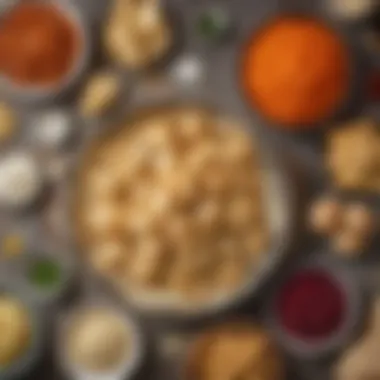
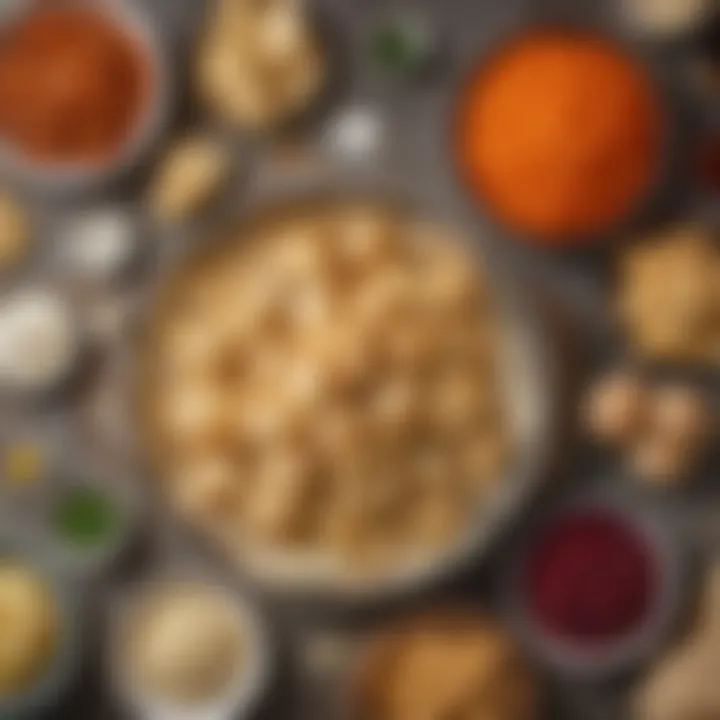
The challenge lies in creating dishes that not only taste good but also respect the rich cultural history of Jewish cuisine. Moving forward, the interplay between tradition and innovation will shape future Passover culinary landscapes.
"The evolving nature of Passover cuisine illustrates the dynamic relationship between heritage and modern cooking methods, encouraging both innovation and respect for tradition."
Common Pitfalls When Choosing Phyllo Dough
When selecting phyllo dough, especially for Passover, it is vital to acknowledge common pitfalls that can hinder usability and compliance with kosher guidelines. Many people may overlook details that seem minor but can lead to significant problems during preparation and consumption. Understanding these pitfalls ensures that the dough used aligns with not only culinary expectations but also with adherence to dietary laws.
Misconceptions About Kosher Guidelines
A prevalent misconception is that all phyllo dough is inherently kosher. This is not the case. While many brands produce phyllo dough labeled as kosher, it is crucial to double-check the certification. Some consumers might assume that a notable brand automatically meets kosher standards without verifying the specific certifications. The term "kosher" can vary based on production practices, which means that not every item labeled kosher is suitable for Passover.
In addition, misunderstandings about the ingredients can lead to poor choices. For example, certain oils or additives not compliant with Passover rules may be included even in kosher-certified products. Paying close attention to the ingredient list and understanding each component can prevent unintentional violations of dietary laws. Educating oneself about kosher symbols, as discussed in earlier sections, can help alleviate these misconceptions.
Potential Cross-Contamination Issues
Cross-contamination is another significant concern when working with phyllo dough. Kitchens that prepare both kosher and non-kosher foods can introduce allergens or non-compliant ingredients inadvertently. If a kitchen surface or utensil previously touched non-kosher items is used again without proper cleaning, it can render the phyllo dough unsuitable for Passover consumption.
To mitigate this risk, it's advisable for those preparing foods for Passover to maintain strict separation in their kitchens throughout the Passover preparation period. Using dedicated utensils and space for kosher ingredients can greatly reduce the risk of cross-contamination. Furthermore, asking questions about the origin of the phyllo dough can help identify any risks associated with its preparation.
Cultural Significance of Phyllo Dough in Jewish Cuisine
Phyllo dough holds a unique place in Jewish culinary traditions. Its versatility and ability to adapt to various cultural influences make it a cherished ingredient, especially during Passover. This delicate pastry has ancient roots, originating from Middle Eastern and Mediterranean cuisines. Over time, it has been integrated into Jewish cooking, symbolizing both cultural adaptation and culinary innovation.
The significance of phyllo dough extends beyond mere flavor or texture. It embodies the blending of cultures. Jewish immigrants in different regions adopted local practices and incorporated them into their meals. This blending process has given rise to a myriad of dishes that carry both Jewish and local influences, showcasing adaptability while preserving tradition.
Global Variations of Phyllo-Based Dishes
Across the globe, phyllo dough appears in diverse forms, each variant reflecting distinct cultural nuances. In Greece, for instance, it is used to create baklava, a sweet treat filled with nuts and honey. In the Middle East, variations like burek or sambusak are common, often filled with spiced meat or vegetables. Each dish tells a story of its origins and showcases the culinary diversity within the Jewish diaspora.
In Eastern Europe, phyllo dough has been linked to celebratory dishes served during holidays. It finds its way into strudel, particularly apple strudel, that combines layers of dough with sweet or savory fillings. The technique of making layered pastries is a skill passed down through generations, reinforcing community bonds around shared culinary practices.
Phyllo and Community Traditions
The use of phyllo dough in Jewish kitchens is not only about sustenance but also about community and tradition. During Passover, families come together to prepare festive meals, often featuring dishes made with phyllo. This collaborative spirit enhances the holiday's essence, focusing on unity and collective culinary experiences.
Phyllo also takes on a more significant role during communal gatherings. It is common to find dishes like spanakopita served at holiday celebrations, symbolizing the connection between food and togetherness. Cooking with phyllo becomes an act of preserving culture and sharing legacy, fostering a sense of belonging among community members.
In summary, phyllo dough is more than a cooking ingredient; it represents a tapestry of traditions, blending heritage with modernity. This pastry connects Jews across various backgrounds, fostering an appreciation for their shared history while embracing the evolving nature of their cuisine.
Closure: Navigating Phyllo Dough Choices for Passover
Phyllo dough occupies a unique position in the culinary landscape, especially during Passover. As families prepare for this significant holiday, understanding the kosher considerations surrounding phyllo dough becomes essential. This conclusion serves as a reflection on key elements to consider while navigating phyllo dough choices for Passover, alongside a discussion of its benefits and implications.
Reflecting on Kosher Practices
The importance of kosher practices during Passover cannot be overstated. Observant individuals scrutinize not just the ingredients in their food, but also the processes used in preparation. Phyllo dough, commonly used in various traditional recipes, poses certain challenges. For instance, ensuring that the dough remains free from chametz—leavened grains that are prohibited during the holiday—is paramount. This requires a thorough examination of labels and a cautious approach when selecting store-bought options. Homemade phyllo dough can be an excellent alternative, allowing for greater control over ingredients and preparation methods.
Additionally, cultural traditions play a role. Each community has its interpretations of what is acceptable. Thus, discussions with knowledgeable authorities or community leaders provide further clarity on kosher practices surrounding phyllo dough. This adherence to tradition not only preserves religious integrity but also honors past generations who celebrated Passover.
Future Considerations in Passover Dietary Options
Looking forward, several trends and considerations shape the future of Passover dietary options including phyllo dough. As dietary preferences evolve, the demand for gluten-free or alternative grain options increases. This opens up a dialogue about how traditional recipes can adapt while still adhering to kosher laws. The food industry is responding by creating gluten-free phyllo dough, catering to those with sensitivities or gluten intolerances.
Another aspect to consider is the integration of modern culinary techniques. Innovative chefs are finding ways to incorporate phyllo dough into contemporary recipes. This fusion of traditional and modern cooking not only reflects changing tastes but also invites a wider range of ingredients—provided they remain kosher.
"Navigating the kosher landscape during Passover involves balancing tradition with modernity. Food should nourish both body and soul, and phyllo dough can play a key role in this harmony."
Ultimately, the future of phyllo dough in Passover cooking lies in a commitment to quality, creativity, and respect for dietary laws. As consumers and chefs become more educated, they contribute to a richer dialogue about food and faith that is both inclusive and thoughtful. Understanding these complex relationships ensures that even traditional foods like phyllo dough can be enjoyed in meaningful ways during Passover.
The choices made around phyllo dough and its preparation during Passover will continue to evolve, reflecting the community's values and beliefs while offering delightful culinary experiences.







